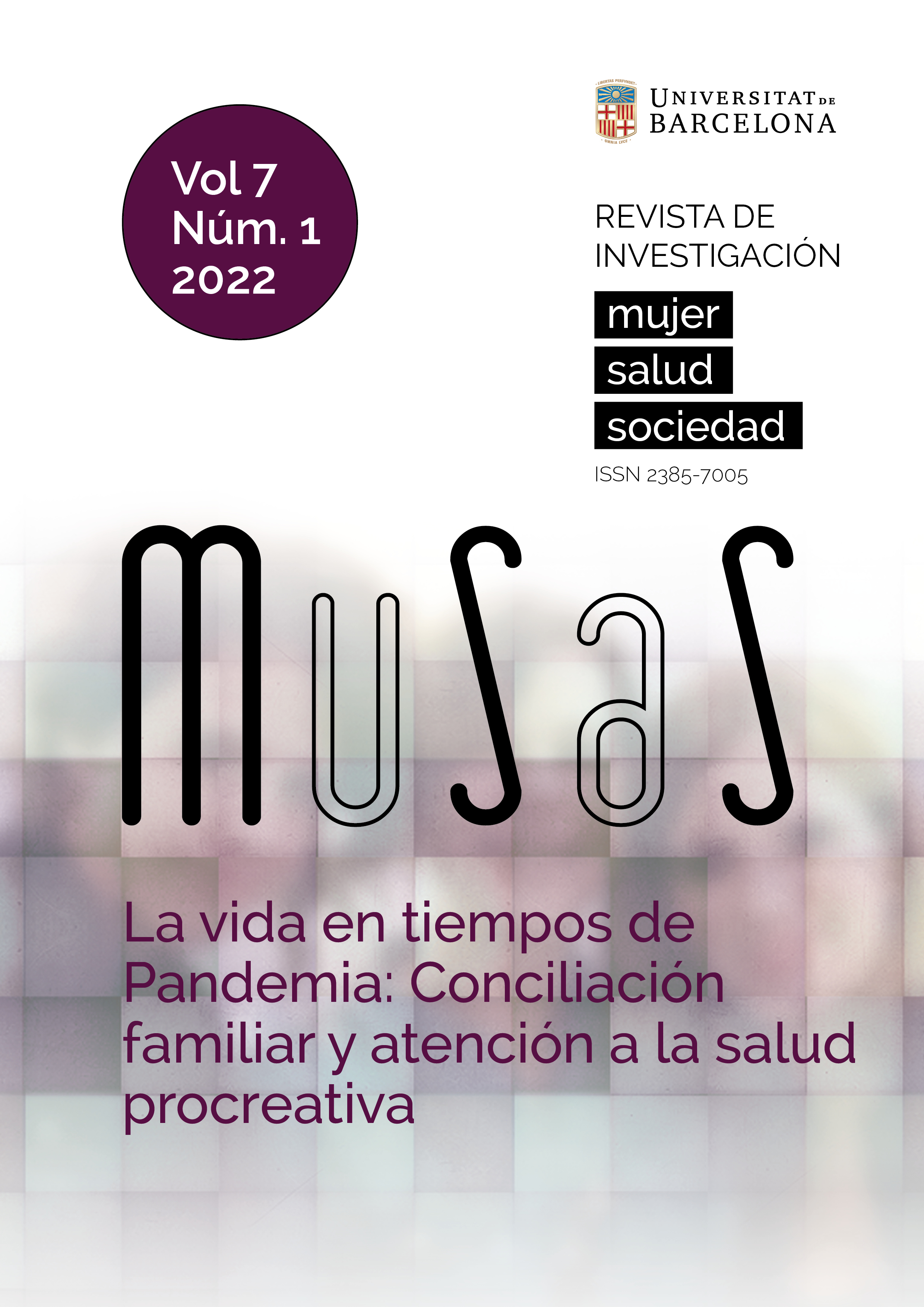Assessing the Quality of Care for Patients Requesting a Late Termination of Pregnancy
DOI:
https://doi.org/10.1344/musas2022.vol7.num1.7Keywords:
Quality Care, Abortion, Stillbirth, Perinatal Grief, Hospital CareAbstract
Objective To evaluate the experience of patients who were in the process of pregnancy interruption due to serious or incurable fetal malformations above 22 weeks’ gestation. Materials and Methods. A descriptive, cross-sectional pilot study was carried out using an ad-Hoc questionnaire that included 15 questions related to the quality of care and the gestational loss process developed by a multidisciplinary team of nurses and specialists in Maternal Fetal Medicine from the Hospital Clínic de Barcelona. The quality of the «care» was evaluated using a score from 0-10 points. Results/Findings. The global «Care» score was 9.45. The environmental noise score was 5.98 in the different hospital facilities and the perception of time from delivery to hospital discharge had a score of 6.22. All our patients were offered contact with their babies after the interruption, but 58 % of the families would have liked to receive other regards in addition to the fingerprints they receive and 47% would have liked to have taken photographs of their babies. Additionally, 37 % of families said they would have spent more time with them. Finally, 53 % of the families reported the need to require psychological or emotional support, both during hospital admission and in the puerperium. Conclusions. The general assessment of the care provided was appropriate, although some aspects could be improved. Conducting a survey of families undergoing a late pregnancy interruption is a useful method to assess the quality of care provided and to design future actions.
Downloads
Published
Issue
Section
License
Authors publishing in this journal agree with the following terms:
- Authors hold the copyright, but MUSAS holds the right of first publication.
- Manuscripts will be disseminated with the Creative Commons CC BY-NC license, which allows sharing it with third parties as long as they recognize the authorship, the first publication right held by MUSAS and the license’s conditions






